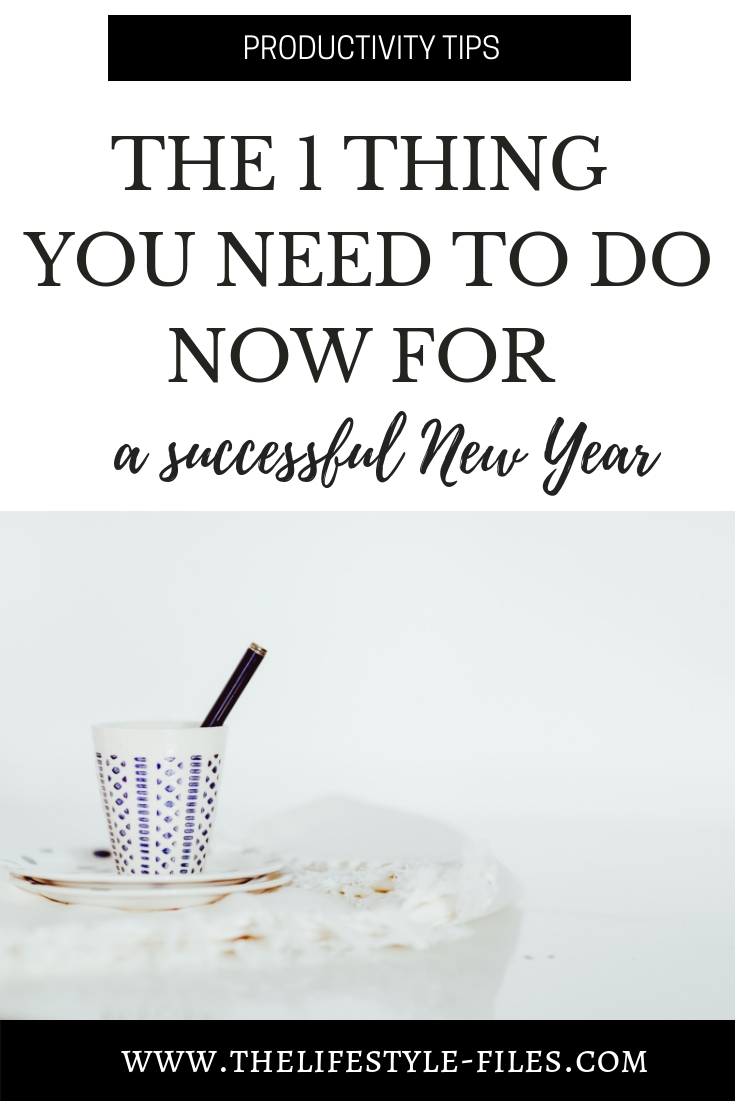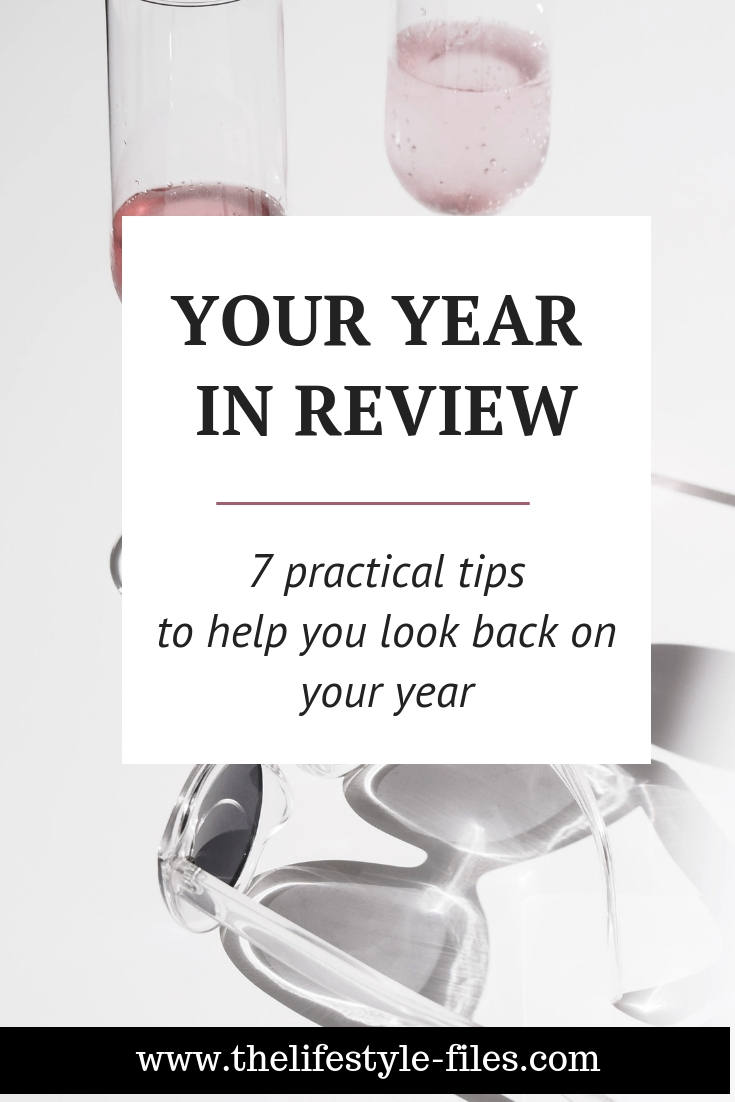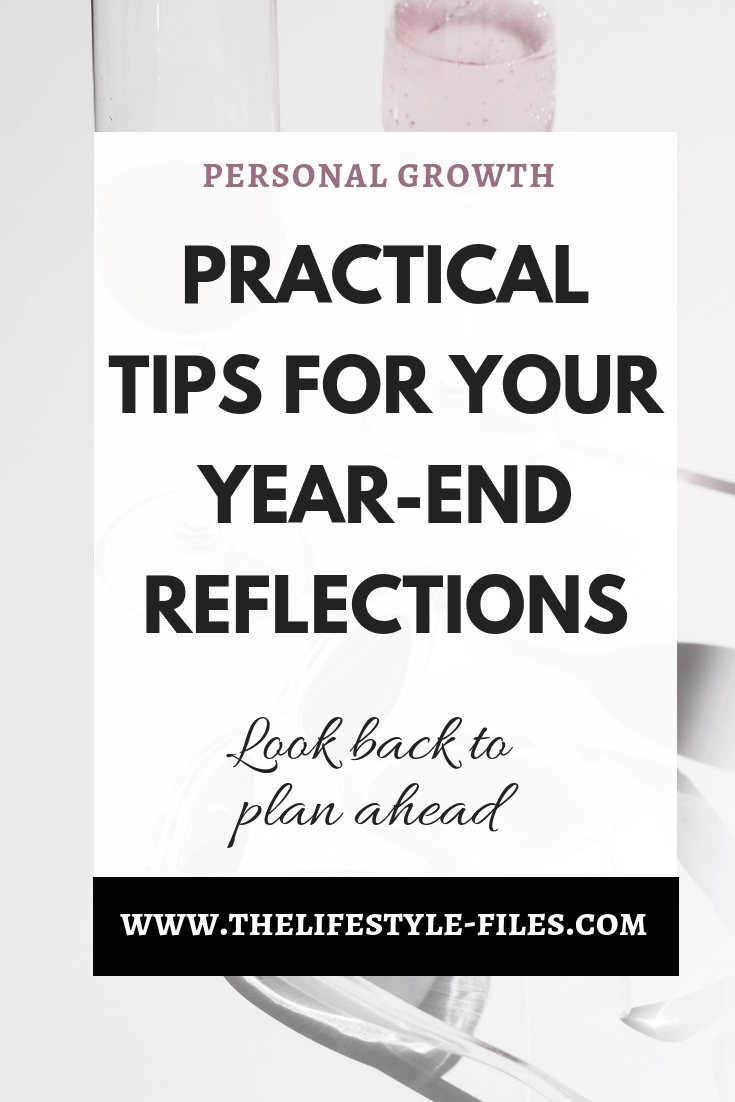 December 31.
December 31.
We’re here again at this strange juncture when we simultaneously feel the power of past and future. One part of our mind is taken over by memories, moments, highlights, experiences, successes, and fails. The other is already itching to move forward, towards a new year, new goals, new opportunities.
A lot of people only (or mainly) focus on the second part. They prioritize resolutions over reflections, and I think this is one major reason why a lot of resolutions are forgotten by the end of January.
You cannot really plan ahead without looking back. Mostly because the calendar date may change in one second from 2018 to 2019, but we don’t really. We may be a little bit more determined or optimistic, but our fundamental experiences, skills, mindsets do not magically transform overnight.
I love new beginnings as much as the new person, and I do view the new year as a fresh opportunity. Not a totally blank page though – rather as a new stage of a journey I’ve been on for a long time.
Look back to plan ahead
Almost a year ago, I wrote a pretty detailed blog post on how I usually plan my year ahead (you can read it here). As I’ve said my process is a mix of yearly themes, practical, actionable goals, and bucket lists. This is a system I’ve been using for years and this is how I’m going to plan my 2019 as well.
What I probably haven’t emphasized enough is that this yearly planning is very heavily based on my year-end reflections.
One part of this process is very positive. I look back at my favorite memories and what gave me joy. I acknowledge my accomplishments, successes, things I’m proud of. This is not an ego trip, but a critical factor for both my mental health and strategic vision.
Another part is more difficult – looking back at what I didn’t accomplish or not in a way I thought. What were the challenges, what I’ve learned, what I need to focus on more – these are the questions that really matter.
I know it’s hard to find a balance between constructive self-criticism and beating ourselves up for every single mistake, but it’s essential in order to have a clear vision of the future and realistic expectations.
My best advice is to dedicate equal time for both parts, be honest, and don’t dwell on the past that much. Use the positive things for building self-confidence and the negative experiences as valuable life lessons.
Practical advice for year-end reflections
+ There are many ways to do the year-end reflections from in-depth journaling to answering a variety of questions (you can read a couple of helpful lists of which questions to ask here and here). You can also simply talk about it with your family, partner, or friends – sometimes the best realizations come when we say things out loud or when someone provides a good outside perspective. There is no one true way to do this, find the method that best works for you
+ With that said, I still go for a written summary – it helps me think deeper, and also, how fun will it be to reread these years and years later?
+ Instead of reflecting on your life in general, be very specific and analyze the various life areas. I mainly focus on the following five:
– General year summary (how the theme of my year measured up to my initial plans, highlights, lessons)
– Social (family, friends, socializing, travel, fun experiences)
– My freelancing business (results, successes, shortcomings, lessons)
– Personal growth (mindset, skills, habits, life lessons)
– Blog (topics and themes I wrote about, growth, what I achieved and what I didn’t get to, what I learned)
+ Don’t just think, relive in a way. Take out your photos, calendar, notes, or journal entries in order to really refresh your memories.
+ Don’t just state – explain. It’s easy to register facts, but the real interesting part is the story behind those facts. So you wanted to do something and it never worked out in the end? Why? Could you have done something differently? If you had major success milestones, how did you do that? Any particular skills, mindsets that helped you? Once again, the key is total honesty.
+ Block ample time to do your reflections – do not rush this.
+ Finally, one of my most important tips: Don’t wait another year to do this practice. Year-end reflections are great, but definitely not enough – for maximum results, you gotta do this much more regularly. I actually do a shorter version of this every single month. I start each month by short goals (or focuses as I call them) and end each with a reflection and summary. It definitely helps me keep a clear focus on my goals.
So, there’s nothing else left to say in 2018 except for one thing.
Thank you all.
Thank you all who find the time in their life to come back again and again, read my posts, comment, connect, and support. You cannot even imagine how much it means to me.
I wish you health, happiness, meaningful moments, lots of laughter, and great success for 2019. xx






